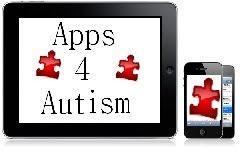A new University of Missouri study shows that children with autism have slight differences in facial characteristics — a finding that indicates the disorder develops in the womb.
Kristina Aldridge, assistant professor of pathology and anatomical sciences in MU’s School of Medicine, worked with other researchers at the Thompson Center for Autism and Neurodevelopmental Disorders to analyze 64 boys with autism and 41 typically developing boys ages 8 to 12.
They used a camera to capture 3-D images of each child’s head and then mapped 17 points on the faces. When Aldridge compared the two groups, she found statistically significant differences in facial features.
Children with autism have a broader upper face and wider eyes than children without the disability, researchers found. Autistic children also have a shorter middle region of the face, including the cheeks and nose, and a wider mouth.
“What’s important about studying the face in autism is that the brain and face develop in close contact,” Aldridge said.
If something in the brain is changing that will ultimately result in autism, she said, that also should be reflected in facial features.
More @ http://www.columbiatribune.com/news/2011/oct/26/mu-study-links-facial-features-to-autism/


